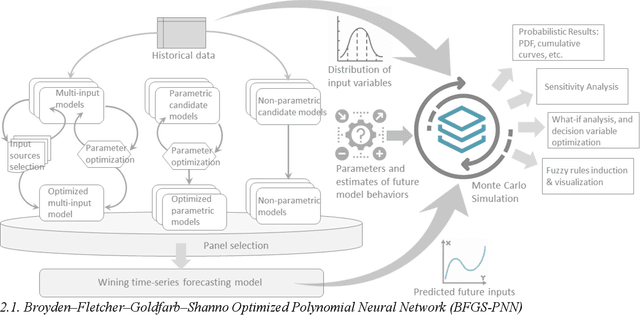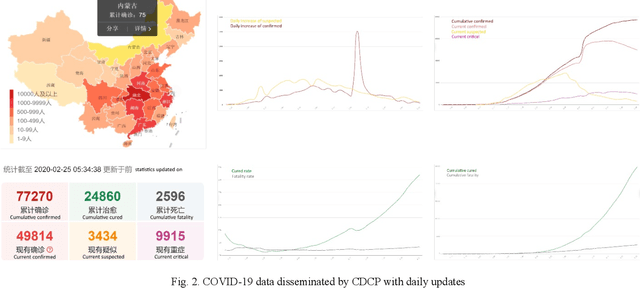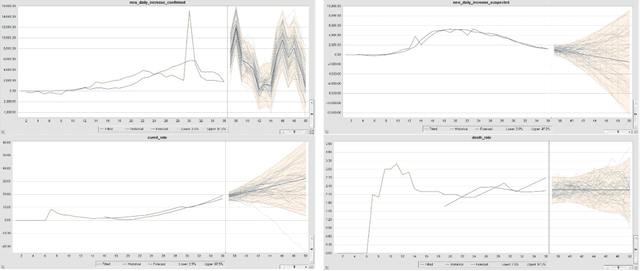Ruben Gonzalez Crespo
Composite Monte Carlo Decision Making under High Uncertainty of Novel Coronavirus Epidemic Using Hybridized Deep Learning and Fuzzy Rule Induction
Mar 22, 2020



Abstract:In the advent of the novel coronavirus epidemic since December 2019, governments and authorities have been struggling to make critical decisions under high uncertainty at their best efforts. Composite Monte-Carlo (CMC) simulation is a forecasting method which extrapolates available data which are broken down from multiple correlated/casual micro-data sources into many possible future outcomes by drawing random samples from some probability distributions. For instance, the overall trend and propagation of the infested cases in China are influenced by the temporal-spatial data of the nearby cities around the Wuhan city (where the virus is originated from), in terms of the population density, travel mobility, medical resources such as hospital beds and the timeliness of quarantine control in each city etc. Hence a CMC is reliable only up to the closeness of the underlying statistical distribution of a CMC, that is supposed to represent the behaviour of the future events, and the correctness of the composite data relationships. In this paper, a case study of using CMC that is enhanced by deep learning network and fuzzy rule induction for gaining better stochastic insights about the epidemic development is experimented. Instead of applying simplistic and uniform assumptions for a MC which is a common practice, a deep learning-based CMC is used in conjunction of fuzzy rule induction techniques. As a result, decision makers are benefited from a better fitted MC outputs complemented by min-max rules that foretell about the extreme ranges of future possibilities with respect to the epidemic.
 Add to Chrome
Add to Chrome Add to Firefox
Add to Firefox Add to Edge
Add to Edge